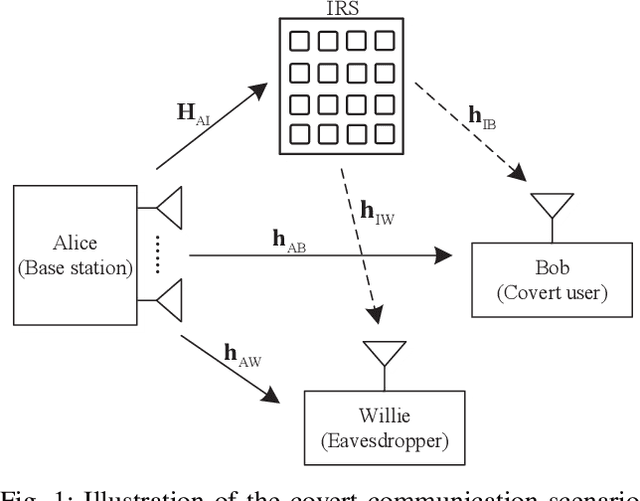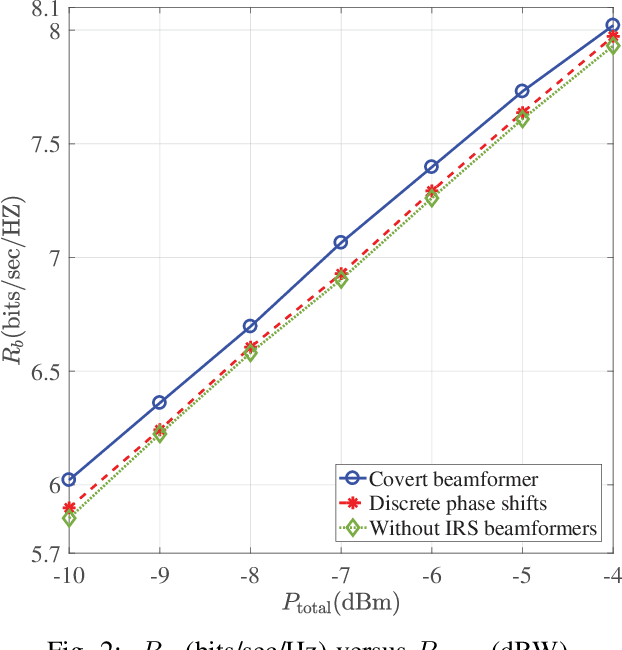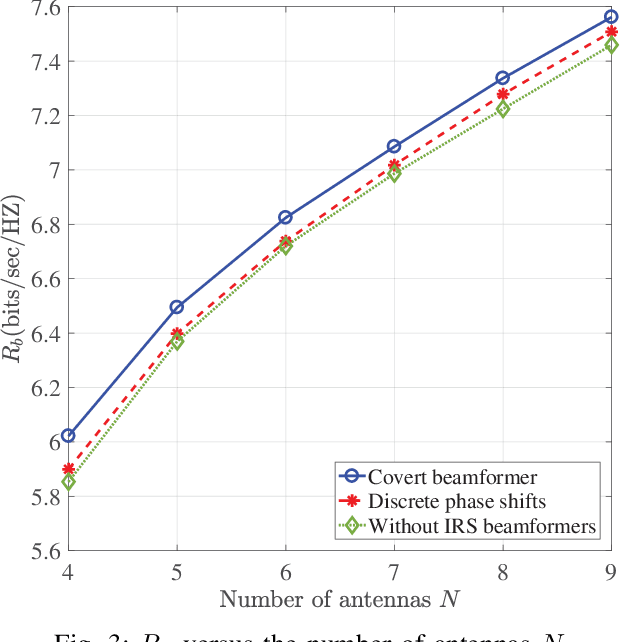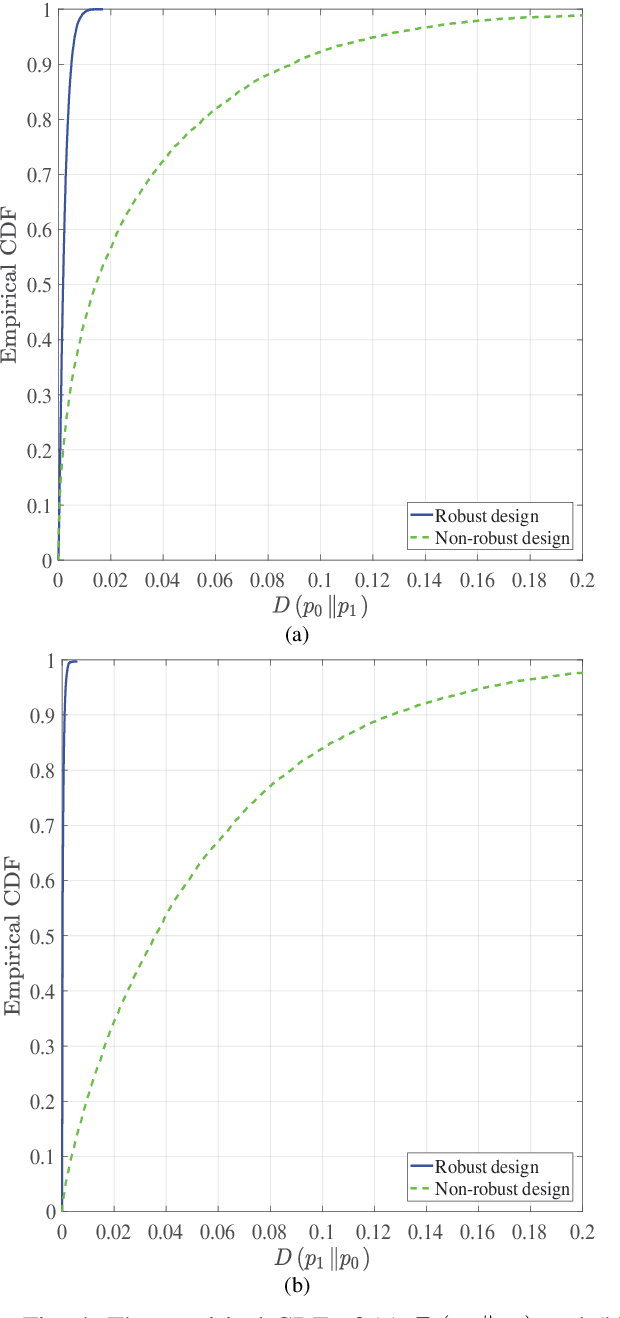Covert Beamforming Design for Intelligent Reflecting Surface Assisted IoT Networks
Paper and Code
Sep 01, 2021



In this paper, we consider covert beamforming design for intelligent reflecting surface (IRS) assisted Internet of Things (IoT) networks, where Alice utilizes IRS to covertly transmit a message to Bob without being recognized by Willie. We investigate the joint beamformer design of Alice and IRS to maximize the covert rate of Bob when the knowledge about Willie's channel state information (WCSI) is perfect and imperfect at Alice, respectively. For the former case, we develop a covert beamformer under the perfect covert constraint by applying semidefinite relaxation. For the later case, the optimal decision threshold of Willie is derived, and we analyze the false alarm and the missed detection probabilities. Furthermore, we utilize the property of Kullback-Leibler divergence to develop the robust beamformer based on a relaxation, S-Lemma and alternate iteration approach. Finally, the numerical experiments evaluate the performance of the proposed covert beamformer design and robust beamformer design.
 Add to Chrome
Add to Chrome Add to Firefox
Add to Firefox Add to Edge
Add to Edge